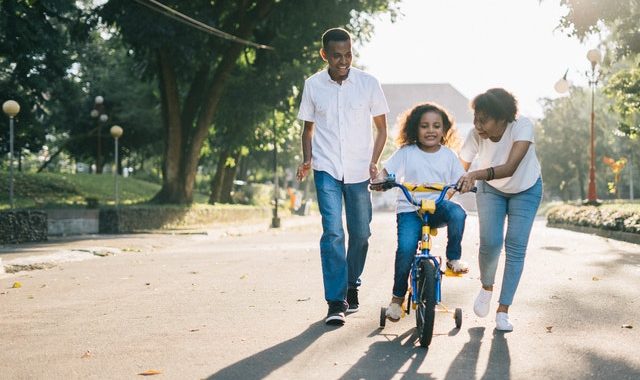I’m glad if the title of this article got your attention, and I want you to know I’m serious.
No matter how well-adjusted my kids might be, or how kind and compassionate they are,
or how patient I seem at times…we don’t have it all together. If the last three months of
social isolation has proved anything, it’s that we have room for growth. Yes, we’ve also
seen many great things during this time together and are very thankful for how well the
family has handled recent stress, but we need to be clear about our blind spots.
Blind spots, as the name implies, are unseen, until they’re not. Whether through
intentional self-reflection or feedback from others, sometimes we are faced with a reality
we didn’t see, or didn’t want to see, before. This affords us an opportunity to grow. That
growth may be uncomfortable, or even painful, but it’s necessary and has the potential to
be beautiful. If we close ourselves to the opportunity for growth by thinking we have it
all together, we miss an opportunity for something great, and we model a closed mindset
that our children may internalize.
Your children are going to have blind spots, and some will think they have it all together
early on, but your job is to help them wade into the discomfort of growth and find pride
in that process, not just the outcome. If you find yourself feeling guilty for a difficulty
your child is experiencing, know that you are not alone. I regularly hear parents, in and
out of my office, wondering how their child would behave, feel, socialize…if they had
done something differently. That parent guilt can be heavy and detract you from the here
and now of your child’s development. It makes it difficult to see today as an opportunity
for growth, and instead fills the void with regret.
I have written about mindful parenting before, and one of the main things I talk to parents
about is being present in the here and now, and not stuck in the there and then of the past
or future. If you find yourself comparing your family to others, or to how you were
raised, proceed with caution. Your child and current circumstances were not part of the
“there and then,” so it can be an exhausting exercise that ignores the needs in front of you
in the moment. When we focus on “what ifs” we miss the moment we can truly influence,
the one here and now. Accepting the messiness of family life feels risky because we feel
exposed. And yet, that very vulnerability can build strength, connections, resilience, and
beauty. If my family had it all together, we would end up in self-protection mode to make
sure this did not change. Instead, let’s model willingness to grow, awareness of where
growth is needed, and openness to the feedback and support of others. If children see
these traits lived out in their parents, it will prepare them to approach their shortcomings,
rather than avoid, and engage in a process of growth. So when that parent guilt shows up
and offers regret, bring your attention back to the here and now, and recognize the offer
to engage in the process of development that is cumbersome and fulfilling, painful and
beautiful, messy and life-giving.
To continue working on this with your family, follow these steps:
- Practice gratitude regularly, and challenge everyone to find something to be grateful for,
even in difficult circumstances. - Be open to feedback. Ask your kids what is going well and what they wish was different
about family life. Ask about when they feel good and when they feel misunderstood.
Approach the conversation with the goal of listening and understanding their point of
view. You can respond later if needed, but initially just listen. - Affirm areas of growth and the incremental steps taken in the process.
- Be careful when talking around or to your children about how things were when you
were growing up, or how you couldn’t get away with this or that. While those statements
could be true, they are not anything that your child can control, and may make them feel
their own guilt or shame. Focus your comments on the here and now. If you do need
support in helping them, talk about how you’re going to keep developing your parenting
skills to help them, and that you’re open to feedback from professionals and will get
additional help for them as well if needed.

